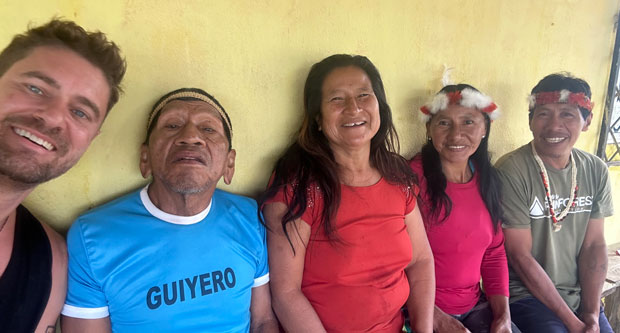As is often mentioned by industry professionals and landscaping companies, finding reliable labor is as challenging as ever.
It’s causing many companies to expand their search for employees outside the country, but with uncertainty regarding the political climate, many companies can only wait and see what happens with immigration and H-2B policies.
That’s where another option presents itself to landscapers struggling to find workers — hiring from Puerto Rico. Clay Martin, founder of recruiting agency Isla Talent, says that because Puerto Rico is a U.S. territory with American citizenship, it can be a great place to find extra help without the red tape of needing a visa.
“(Puerto Ricans) are a larger workforce that wants to come work, and I help bridge that gap,” Martin says. “No visas needed, so job seekers from Puerto Rico can come over quite quickly, and I help facilitate that process.”
Martin says the process is mutually beneficial for both parties, as Puerto Rican job seekers are able to reliably find work and make more money in the states, better helping them support themselves and their families. For landscaping companies, this process allows for another way to find the labor needed.
Using a recruiting agency like Isla Talent also provides further benefits, including ongoing support and mediation for both parties to help keep the relationship positive and productive.
“As long as the workers are (with the company), I give ongoing support, ongoing translation and mediation,” Martin says. “That significantly helps with the retention.”
And Martin says this high retention has led to many success stories. For example, one of Martin’s clients — Vidosh North in Michigan — hired an employee through Isla Talent that had almost no landscaping experience. After just a year, that employee ended up becoming a crew leader and moving his family there, and he has now been there for seven years.
“We keep in touch, and he’s very grateful,” Martin says. “The reason that was sustainable is because Vidosh knows how to treat their people and knows how to create leaders. They were patient with the process, and they still get people from Puerto Rico. They still have people that come back every year, and they made a guy with minimal landscape experience now a foreman.”
Martin also says that for this kind of success to work, companies need to be willing to really focus on building up and valuing employees, and a recruitment agency can assist in matching job seekers to the right companies.
“The first thing I do is get to know the company and their needs and their company culture, so I do a client assessment and make sure this landscape company is a good fit and their benefits are attractive,” Martin says. “(Then) I go to my talent pool, and I find the right match and see if they’re interested. It usually takes about two weeks from the time that I have everything from the company to the time the Puerto Rican arrives for work.”
Another big factor in the success of hiring from Puerto Rico is having a recruiter who can understand and appreciate any cultural differences. Martin says Isla Talent was born thanks to his experiences in Latin America through the Peace Corps, and they helped him grow a strong network based on trust and hard work. He says these have also helped him grow into more than just the landscaping industry, as he has expanded his offerings into the manufacturing, hospitality and health care industries as well.
“I was an agriculture volunteer for four years in Ecuador and Panama, and I lived with indigenous tribes. I really gravitated to their culture. I gravitated to their way of life,” Martin says. “I really think my four years in the Peace Corps helped me become an entrepreneur because I was creating projects literally from the ground up — sometimes from nothing.”
Martin says that with the uncertainty of immigration and H-2B policies, and with the difficulty that comes from hiring locally, it’s important for companies not to put all their eggs in one basket when it comes to hiring, meaning looking at Puerto Rican job seekers can be more effective than ever. In his career, Martin says he’s helped roughly 400 companies find 3,000 Puerto Rican employees.
“A lot of people, a lot of companies are worried about their labor and the access to the workforce,” Martin says. “Most companies are worried, and that’s why I like to ease their concerns — ease their paranoia.”


